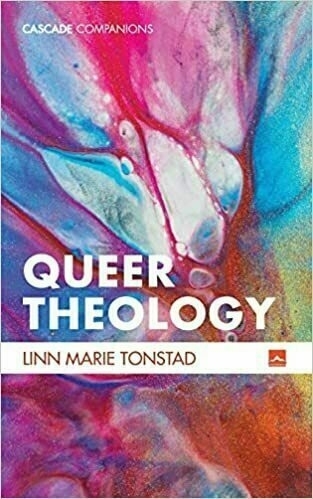Recent reading: Queer Theology by Linn Marie Tonstad

The past couple months I’ve been participating in a reading group hosted by Matt Tebbe. (Matt leads an Anglican church plant in the Indianapolis area.) This group, framed around “Reading for the Sake of Others”, is focused on reading outside of the usual conservative white male authors that fill our reading piles. The intention is not that we will agree with everything we read—indeed, if we do, we’re probably not reading widely enough—but to expand our horizons, to acknowledge our blind spots, and to stretch us at least a little.
Our first book in March, then, is one I would likely have never picked up otherwise: Queer Theology by Yale Divinity School professor Linn Marie Tonstad. It’s a short book—less than 200 pages—but provided me a lot to think about. I won’t try to summarize it all here, but wanted to recount some thoughts that I scribbled out on Twitter last night.
- I appreciate the focus in queer theology on the reality of embodied existence. Our embodied experience is complex, messy, and should not be ignored. We should pay more attention to what it means for Jesus to have been incarnate.
- I appreciated the thought that, though we might hope or imagine otherwise, we are not “self-transparent, rational, autonomous individuals”—i.e., that we are to some extent unable to make choices that determine our outcomes. This means that the categories that we learn and filter our view of life through are so built-in that they are beyond our control and will inevitably affect our view of everything, but especially of the non-normative.
- I appreciate an approach that acknowledges that there are queer members of the body of Christ, and works from that given to then think through what this might mean about Christ’s and the church’s nature.
- I am challenged by the assertion that if (since) Christianity is “a story in which each person is the object of God’s care, attention, and love”, then Christians should reckon more seriously about those implications, aprticularly regarding politics, economics, and sexuality. This quote reminded me a lot of reading Robert Capon: “The question is this: what does an economy of infinite, inexhaustible love look like?”
- I am conflicted about the queer theology assertion that our sexual self and experience is so fundamental to the experience of being a spiritual human being. The theology I have grown up learning is heteronormative, insisting that other experiences/desires are sinful. Yet, it’s hard to deny the assertion that our sexual selves are fundamental to our human experience, and thus to our spiritual being as well.
- Finally, I really appreciate the language of “human thriving” to describe that which God wants and we should strive for. I have read others (I forget who) who describe sin as that which is contrary to human flourishing, and that’s been a helpful frame for me to think through sin, the result of sin, and the goodness of the law.
I am definitely looking forward to the group discussion on this one next week!